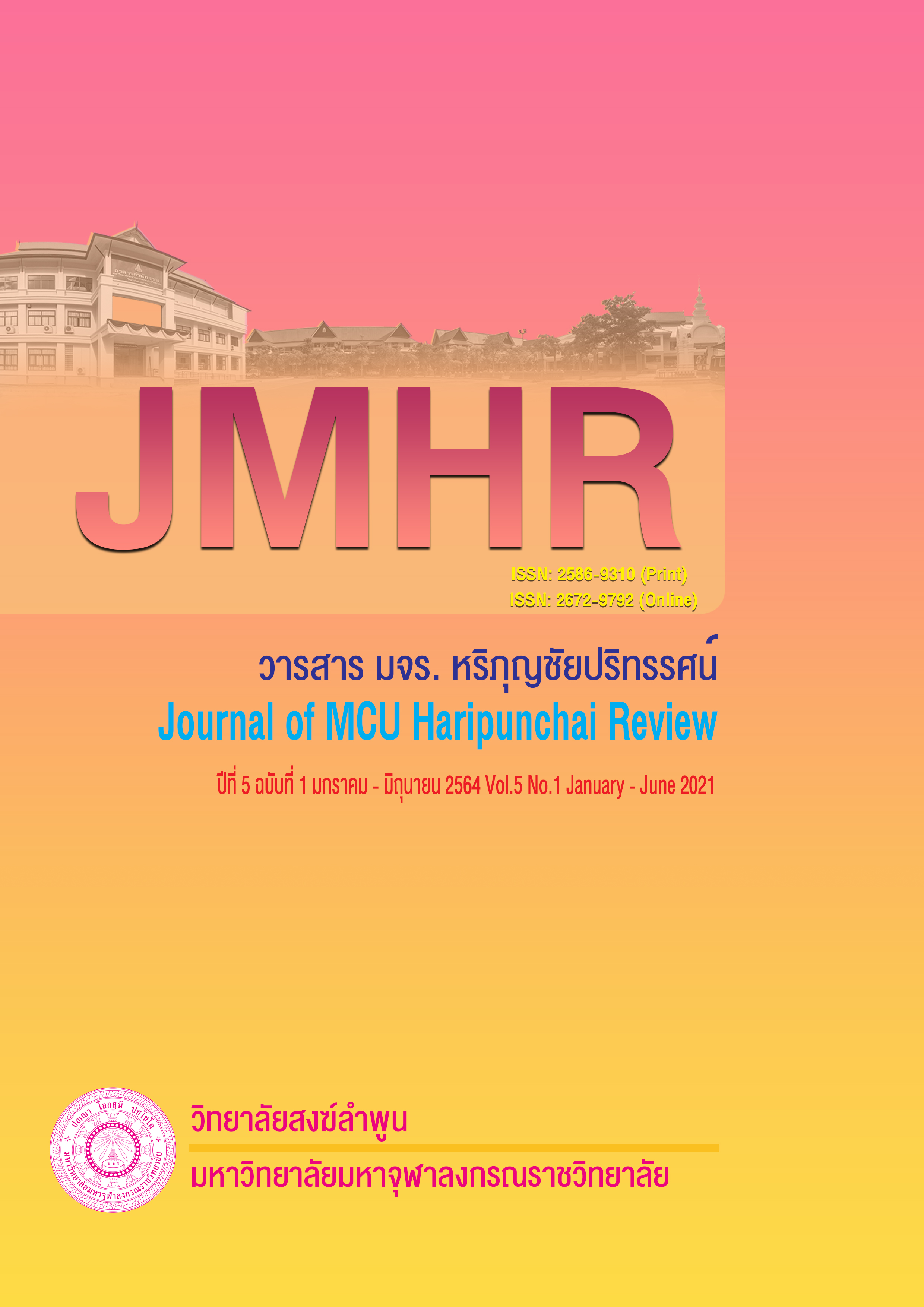THE METHOD OF APPLICATION ACCORDING TO MUDHITA PRINCIPLE IN BUDDHISM
Main Article Content
Abstract
This research entitled “The method of application according to mudhita principle in Buddhism” has the objectives as follows: 1) to study the principle of empathy in Buddhism. 2) to study principles of empathy in Buddhism and 3) to analyze methods of applying the principle of empathy in Buddhism. It is a documentary research by collecting information from documents. The findings of this research are as follows: 1) The principle of empathy in Buddhism found that empathy means joy and joy. When others have been successful or have been successful, happy and prosperous. So it is a virtue that can get rid of jealousy. The principle of empathy is also a component of the principle of Brahma. Which can be applied to the administration of executives. 2) The principle of empathy development in Buddhism found that it must first develop from the mind. When the mind is rejoicing, it continues with actions or words. The development of empathy through meditation This is to train the mind to be calm, to train the good mind, to be wise, to think well, to do good, and to become proud to others. 3) Analyzing the method of applying the principle of empathy in Buddhism, it was found that there was a principle for applying empathy to spiritual development. With faith And with gratitude As for the form of application of pleasure Found that there was a form of worship Praising And worship / things The principle of empathy is applied in a variety of occasions and events, such as applying the principle of empathy to everyday life. With administration With celebration With welcoming guests to the city And with the new position
Article Details
References
พระเทพมงคลญาณ (เสริมชัย ชยมงคโล). (2532). ธรรมสร้างสุข. กรุงเทพมหานคร : วัดหลวงพ่อสดธรรมกายาราม.
พระธรรมกิตติวงศ์ (ทองดี สุรเตโช) ป.ธ. 9 ราชบัณฑิต. (2548). พจนานุกรมเพื่อการศึกษาพุทธศาสน์ ชุด คำวัด. วัดราชโอรสาราม : กรุงเทพมหานคร.
พระมหาก้อง ฐานงฺกโร (โป๊ะหนองแวง). (2560). “การศึกษามุทิตาธรรมที่ปรากฏในพุทธศาสนาเถรวาท”. วิทยานิพนธ์พุทธศาสตรมหาบัณฑิต สาขาพระพุทธศาสนา. บัณฑิตวิทยาลัย : มหาวิทยาลัยมหาจุฬาลงกรณราชวิทยาลัย.
ราชบัณฑิตยสถาน. (2556). พจนานุกรมฉบับราชบัณฑิตยสถาน พ.ศ. 2554. พิมพ์ครั้งที่ 2. กรุงเทพมหานคร: โรงพิมพ์นานมีบุ๊คส์พับลิเคชั่นส์ จำกัด.
มหาวิทยาลัยมหาจุฬาลงกรณราชวิทยาลัย. (2539). พระไตรปิฎกภาษาไทย ฉบับมหาจุฬาลงกรณราชวิทยาลัย. กรุงเทพมหานคร: โรงพิมพ์มหาจุฬาลงกรณราชวิทยาลัย.
สำนักพัฒนาการประชาสัมพันธ์. (2558). ปัญหาสังคมไทยในปัจจุบัน. กรุงเทพมหานคร : โรงพิมพ์กรุงเทพมหานคร.
อภิชัย โพธิ์ประสิทธิ์ศาสน์. (2551). พระพุทธศาสนามหายาน. กรุงเทพมหานคร : สำนักพิมพ์จุฬาลงกรณมหาวิทยาลัย.


